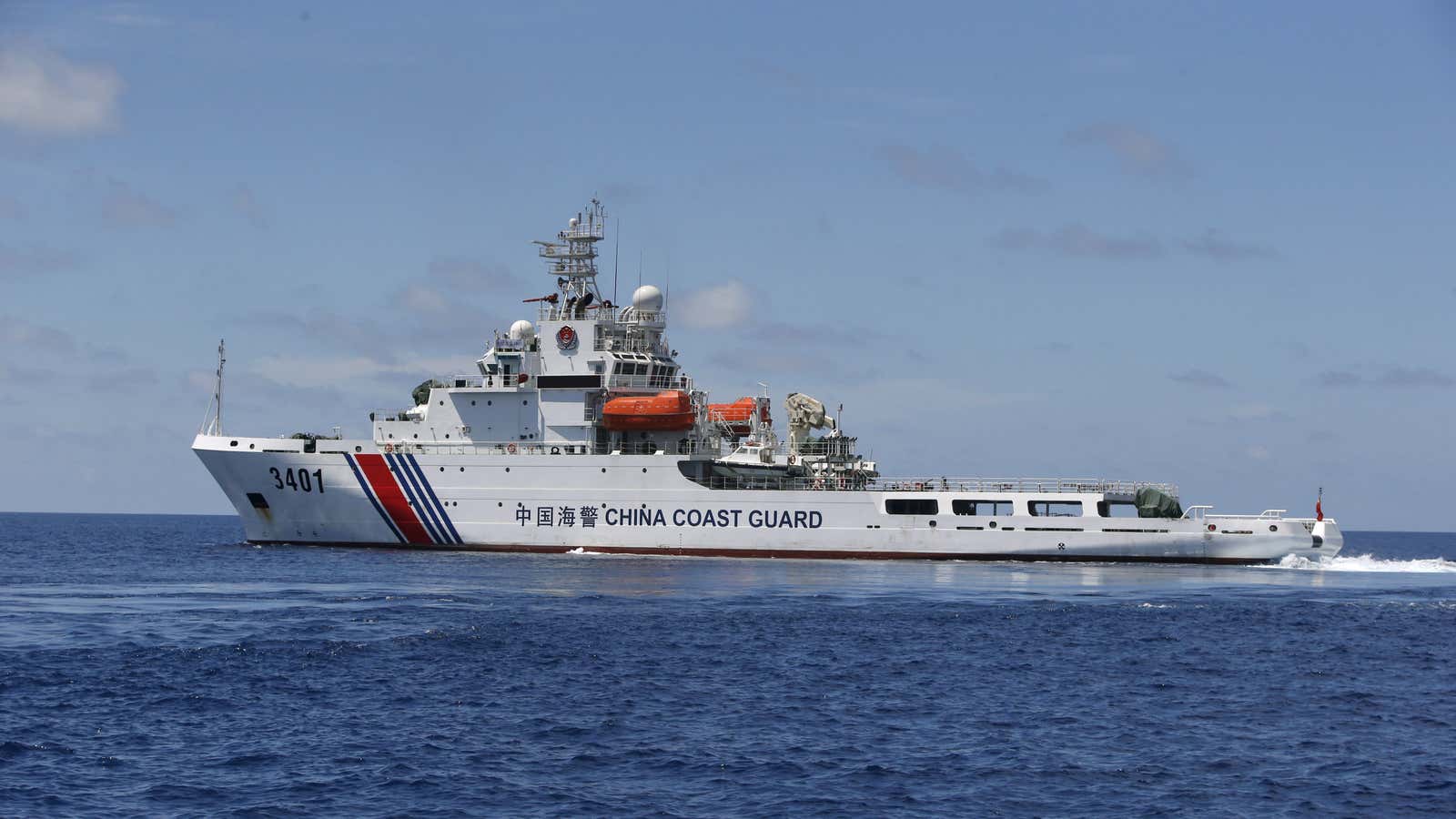With fish stocks declining in much of the Asia-Pacific region, it’s tempting for fishing fleets—from any country—to venture into waters belonging to another nation. In the case of China, fishing boats appear to be giving in to that temptation with some confidence, perhaps knowing they have unusually high levels of logistical support behind them. Recent confrontations between Chinese boats and the navies or coastguards of nearby nations highlight the backing enjoyed by adventurous Chinese fishermen.
Last week, Vietnam’s coastguard seized a Chinese vessel that, by outside appearances, looked to be an illegal fishing vessel intruding in its waters in the South China Sea. Vietnam has long complained about the presence of such boats. But what they discovered was more telling: The ship was merely disguised as a fishing boat. Carrying large amounts of oil, it was actually a refueling ship serving Chinese fishing vessels.
Last month, an Indonesian patrol boat seized a 300-ton Chinese trawler and arrested its crew for fishing within Indonesia’s 200-mile exclusive economic zone off the Natuna islands, northwest of Borneo. Indonesian officers commandeered the intruding vessel, the Kway Fey 10078, and were bringing it to a nearby base when a ship from China’s coastguard suddenly appeared, with another soon arriving in the vicinity. To avoid escalation the lightly armed Indonesians gave up the ship, which Chinese coastguard officials boarded and took out of Indonesia’s waters.
China’s long-distance fishing fleet will also be helped by the manmade islands China has been building out and militarizing in the Spratly archipelago. Based on a map drawn shortly after World War 2, China claims nearly all of the South China Sea as its own territory. With its new islands as a springboard, it will be able to exert more control over the waters, and could launch its fishing fleet even further afield, comfortably escorted by the Chinese coastguard.
China has the world’s biggest and possibly most voracious distant-water fleet, which it heavily subsidizes. Last year the nonprofit Stop Illegal Fishing said the fleet had 2,000-plus vessels. This fleet regularly operates in other nations’ exclusive economic zones, areas close to the shore where fish congregate.
Fishermen in the Malaysian state of Sarawak on Borneo, who traditionally fish around the Luconia Shoals, also know of China’s fishing-fleet support. They live in fear of the “Chinese gunboats” that provide cover to Chinese commercial fishing boats as they muscle into the area.
Even nations far from Asia have encountered the support China extends to its far-flung fishing fleet. Last month Argentina sank a Chinese-flagged trawler illegally fishing in its territorial waters, and arrested the crew. The trawler had ignored repeated warnings and even tried to ram the coastguard ship chasing it. China’s foreign ministry promptly urged Argentina to “protect the safety and lawful rights of Chinese sailors.”
